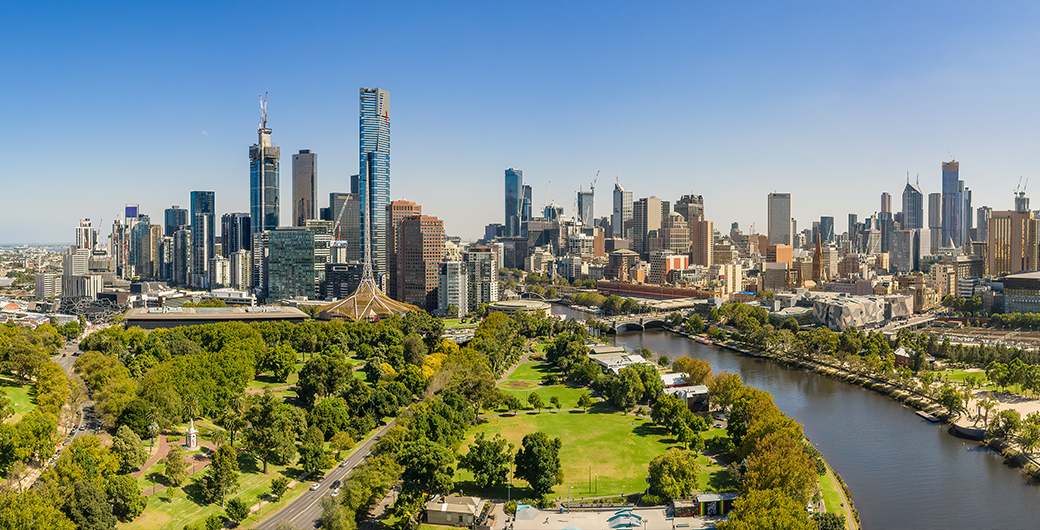Case Library: Unfinished Business? The Victorian Yoo-rrook Justice Commission and Truth-Telling in Australia
29 March 2022
● News and media
Aboriginal and Torres Strait Islander peoples have long explained that the relationship between Indigenous and non-Indigenous Australians can only be improved through a comprehensive process of truth-telling.
In 2021, the Victorian government responded to these calls by establishing the Yoo-rrook Justice Commission. Designed in partnership with the First Peoples’ Assembly of Victoria, the Commission is Australia’s first formal truth-telling process, and part of Victoria’s development of a Treaty with Aboriginal Peoples.
A new case in ANZSOG’s John L. Alford Case Library outlines the history and structure of the Yoo-rrook Justice Commission and its connection to the broader issues of recognition of Aboriginal and Torres Strait Islander Peoples, such as a Treaty and the Uluru Statement from the Heart.
Truth Commissions can be valuable mechanisms to develop a shared understanding of the historic and contemporary injustices perpetrated against Aboriginal and Torres Strait Islander peoples since the start of colonisation. Enhancing awareness and recognition among non-Indigenous Australians may also be key to generating legal and political reform that will lead to a more equitable future.
As Alyawarre elder Pat Anderson has argued: ‘You cannot make a lasting and effective agreement unless you have a shared, truthful understanding of the nature of the dispute, of the history, of how we got to where we stand’
The case explores how the Yoo-rrook Justice Commission in Victoria has emerged organically out of the State’s treaty process, something which improves the likelihood that any recommendations will be acted upon.
The case states that enhancing awareness and recognition among non-Indigenous Australians may also be key to generating legal and political reform that will lead to a more equitable future. However, for this to occur two lessons should be borne in mind. First, Aboriginal and Torres Strait Islander peoples must take a leading role in the development and design of any truth-telling process. Empowering Aboriginal and Torres Strait Islander peoples in this manner should help to guarantee that the process responds to the specific needs and aspirations of Indigenous Australians.
Second, truth-telling processes cannot by themselves lead to reform. Governments should demonstrate their commitment to transform the relationship between Indigenous and non-Indigenous Australians by embedding a truth commission in a larger process of political and legal reform.
For instance, Cobble Cobble woman and professor of law Megan Davis has warned that: “The idea that truth automatically will lead to justice is fraught. It is illusory. It is an ahistorical belief that is simply not borne out by the evidence. It defies the demands we have made as Aboriginal people for rigorous evidence-based thinking and public policy in Indigenous affairs”
The failure of previous truth-telling processes to lead to legal changes has had negative consequences. As the First Peoples Assembly of Victoria has noted, asking First Peoples to retell their experiences can lead to ‘re-traumatisation…when nothing changes’ (First Peoples Assembly of Victoria 2021, 15). It has also led Aboriginal and Torres Strait Islander peoples to question the commitment of government and even the value of truth processes.
Two key challenges faced those responsible for developing the Yoo-rrook Justice Commission. First, the Commission must be adapted to the specific circumstances facing First Peoples in Victoria. Second, the Commission must be able to secure the support of First Peoples in the State by demonstrating that it can lead to significant legal and political reform.
The case concludes that the consultation process may have been limited, but the ultimate design of the Yoo-rrook Justice Commission has delivered a truth commission more clearly adapted for the specific harms of colonisation. Guided by community voices at all stages of its development, the Commission also has a better chance of operating in a culturally safe manner than other inquiries.
Governments in Queensland, the Northern Territory and Tasmania are considering whether they too should establish a formal process of truth-telling. The development and design of the Yoo-rrook Justice Commission offers important lessons for states and territories in Australia contemplating truth commissions.
